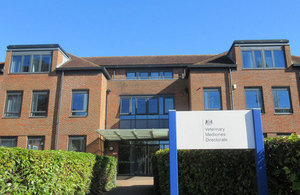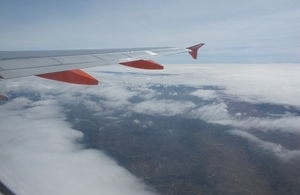Front page articles in The Guardian and Metro today (16 November) regarding the UK government’s procurement of the Moderna vaccine are entirely misleading.
It is inaccurate to say that Britain is “back of the queue” for vaccines, or there was a scramble to secure access to Moderna’s vaccine.
Firstly, if the Moderna vaccine is approved by our regulators, it will be available to the UK in spring 2021 at the earliest – the same timetable as other countries in Europe.
Secondly, the UK was already in advanced discussions with Moderna for some time to procure 5 million doses of their vaccine. Yesterday we were able to finalise that agreement following the publication of their positive Phase III results.
As Moderna is currently scaling up their European supply chain, their vaccine was never going to be available in the UK before spring next year – no matter when we ordered it.
Thirdly, the UK is one of the first countries in Europe to sign a deal with Moderna. Furthermore, the UK was also the first country in the world to sign a binding agreement for the Pfizer/BioNTech vaccine in July 2020.
The EU are yet to formally sign a deal with either developer. If we had joined the EU vaccine programme, the UK would not have secured doses from either Pfizer/BioNTech or Moderna at this stage.
Finally, the UK will be one of the first countries in the world to receive the vaccine being developed by the University of Oxford and AstraZeneca, of which we have ordered 100 million doses – if it meets robust standards of safety and effectiveness.
The UK has now secured access to 355 million doses from seven different vaccine developers, more per head than almost any other country. This includes 40 million doses of Pfizer/BioNTech’s vaccine, which is expected to begin delivery as early as December 2020, if approved by our regulators.
The government, through the work of the Vaccine Taskforce, has put the UK in an extremely strong position if and when a vaccine meets robust standards of safety and effectiveness.
Read our full announcement around securing 5m doses of the Moderna vaccine, as well as our response to the Pfizer vaccine data.


